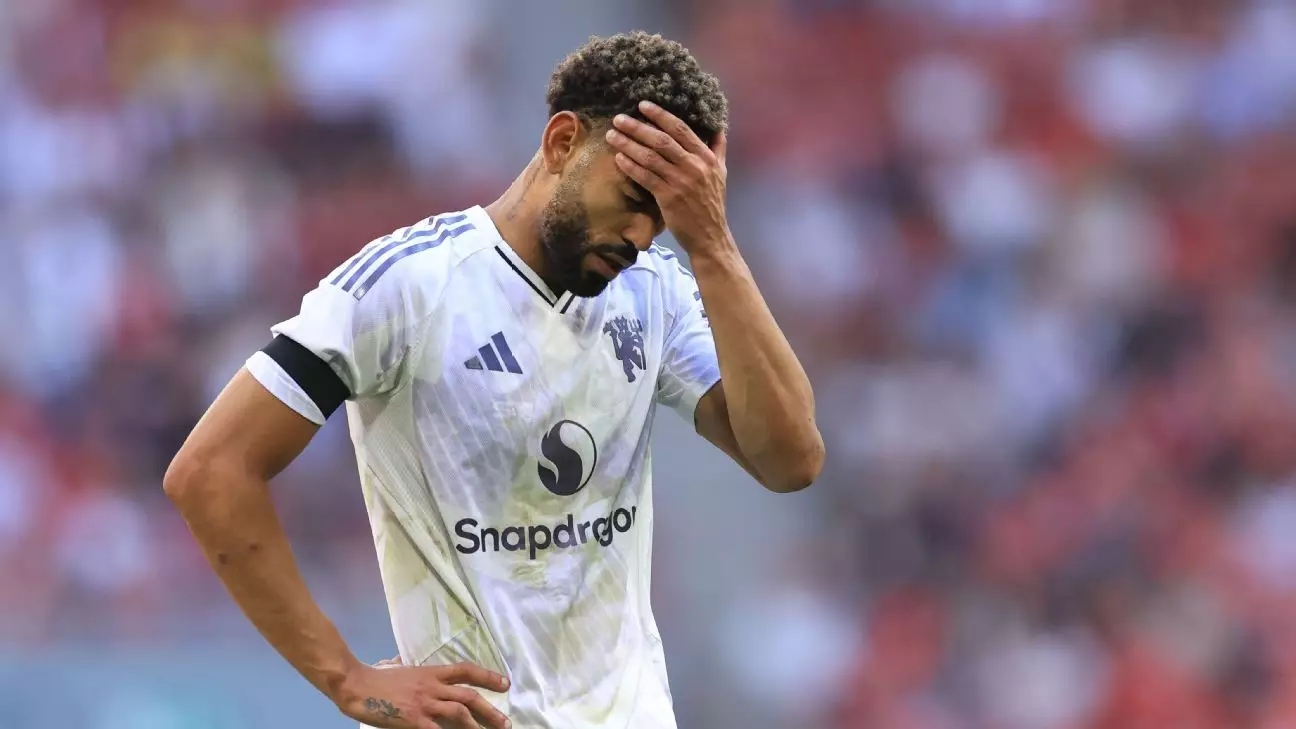Manchester United’s recent preseason encounter against Leeds painted a clear picture of the club’s ongoing struggles, highlighting that the team still faces significant challenges ahead. Despite the arrival of new talent, the Red Devils showcased a conspicuous lack of pace and dynamism, particularly in their attacking phases. The draw, while merely a warm-up, underscored that United’s offensive rhythm remains sluggish, hampered by a lack of quick transitions and incisive movement. This deficiency is especially glaring given their limited goal tally last season, finishing with a paltry 44 goals. If United aspires to elevate its status, addressing these structural issues must take precedence.
The strategic deployment of Matheus Cunha was an attempt to inject creativity and aggression through the middle, but the resulting link-up with the likes of Bruno Fernandes left much to be desired. Amorim’s acknowledgment that the connection between Cunha and Fernandes is underdeveloped reveals the team’s rawness in building cohesive attacking patterns. The coach’s emphasis on pace and the need for players who can threaten defenses with quick breaks suggests that expanding beyond mere possession is crucial. United’s lack of spontaneity and directness reduces their threat levels, risking becoming predictable and easy to neutralize.
Transfer Market Dynamics and Strategic Aspirations
The anticipated arrival of Bryan Mbeumo from Brentford symbolizes an explicit effort by Manchester United to bolster their squad with pacey, versatile attackers. Mbeumo’s potential addition signals a desire to diversify their frontline, searching for players who can accelerate transitions from midfield to attack. While signing a player of his profile could provide the spark needed, it also raises questions about how quickly he will adapt to the team’s tactical demands and chemistry.
Furthermore, speculation surrounds Marcus Rashford’s future, with rumors linking him to Barcelona. His possible departure would be a significant blow, yet Amorim’s optimistic stance on team cohesion suggests a belief in the group’s resilience. The challenge lies in maintaining morale amidst ongoing transfer talks and squad reshuffles. The club’s management must strike a delicate balance—reinforcing the squad without destabilizing the environments that are supposed to foster development.
This window is not merely about acquiring talent but about reinforcing the club’s identity. If Manchester United aims to return to glory, it must prioritize players who can bring both technical ability and a high-intensity work rate. The recruitment process should emphasize players capable of transforming their pace into tangible goal-scoring opportunities, not just adding depth for the sake of numbers.
Building Crimson Confidence and Tactical Cohesion
Amorim’s acknowledgment that the team is in a developmental phase indicates an understanding of the larger picture: success isn’t immediate, but it hinges on cultivating a united, well-organized squad. His comments about the need for bond-building during the U.S. tour reflect a hope that camaraderie and shared purpose will translate into improved performances.
It is critical for Manchester United to view preseason as more than just fitness work; it is an opportunity to forge tactical understanding and consistency. The team’s current issues—poor connectivity, lack of speed, and limited attacking ideas—must be addressed through both recruitment and training. As the club prepares for competitive fixtures, the emphasis should be on accelerating the players’ understanding of their roles and interactions on the pitch.
Moreover, the squad’s mental resilience is equally vital. Amorim’s reassurance about morale reinforces the importance of a positive environment. Winning begins with belief, and in this transitional phase, fostering a collective spirit that can withstand setbacks is fundamental. By focusing on player development and cohesive tactics, United can hope to transform their raw potential into tangible results.
Manchester United’s preseason performances reveal that the journey back to contending at the highest level remains arduous. The club must confront its deficiencies head-on, especially in terms of pace and attacking potency. While new signings like Cunha and Mbeumo show promise, it’s ultimately the team’s cohesion, tactical maturity, and mental fortitude that will determine their success. The upcoming months will be crucial for transforming raw talent into a formidable force, capable of breaking down opponents with speed and precision. The foundation is being laid, but it’s evident that United’s path to redemption demands honesty, effort, and a relentless pursuit of excellence at every level.

